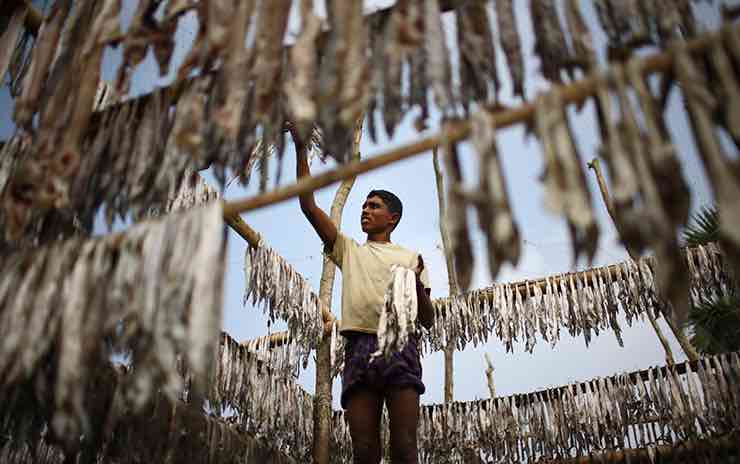This post also appears on A4NH’s Food System Idea Exchange, a new blog series exploring different aspects of food system transformation.
Food system transformation is taking place at many levels: Global, regional, national, local. Yet viewing it through the national level is a particularly useful approach, as this is the launching point for many policies and programs, and national experiences also provide opportunities for countries to learn from one another. This perspective is especially valuable for low- and middle-income countries, where food systems are changing the fastest, and the most. This rapid transformation offers opportunities for greater inclusion of poor and marginalized people, while national-level frameworks enable identification of system drivers, data gaps, and entry points for action to increase inclusion and improved nutrition outcomes for all.
Each country’s food system is unique, of course, and countries face different opportunities and trade-offs for inclusion at various stages of system transformation. As we outline in Chapter 6 of the 2020 Global Food Policy Report, to be effective, approaches must be country-specific—even as lessons learned in one country can inform decisions and actions in another.
Our food systems work, partnerships, and research in the CGIAR Research Program on Agriculture for Nutrition and Health (A4NH) have centered around four countries: Bangladesh, Ethiopia, Nigeria, and Viet Nam. Each is at a different stage of food system transformation moving from traditional to modern—a trajectory that ranges from efforts to ensure food security, to attention to diet diversity, to a focus on ensuring healthy, balanced diets emphasizing food quality and safety.
In Bangladesh, the national focus has shifted from basic food security to targeting diet diversity. The country has made relatively slow progress compared to India on this front. However, this situtation has recently been changing, with markets, particularly in urban areas, offering a more diverse range of choices, including more relatively availalbe fish, vegetables, and milk. However, as diversity grows, so do concerns about food safety. Policy makers must consider how they will ensure food safety and monitor for quality control amid these changes in markets. They must also engage with the private sector to create an enabling environment for markets across the country.
Ethiopia, too, is moving from focusing on food security into the early stages of attention on diet diversity. While the focus has largely been on increasing agricultural productivity, the need now is to think about what greater diversity means for markets, and where investments are needed. Some areas, to be sure, still carry a high burden of undernutrition, and require greater social protection and agri-food development. Efforts to build up links between rural and urban areas are also important to ensure a better food supply and stronger markets for cities and towns.
Nigeria’s size and its geographic, economic, and cultural diversity set it apart from other areas where A4NH conducts food systems research, presenting opportunities to explore what those things mean for national food system transformation. Different regions need different strategies. Overall, the very dynamic private sector should be involved in market development and ensuring quality control. Some areas risk falling behind, so maintaining humanitarian efforts there to ensure continued development is important.
Nigeria also faces the full range of nutrition challenges. Undernutrition and micronutrient deficiencies plague some parts of the country, while other areas are grappling with a rising burden of overweight and obesity and accompanying noncommunicable diseases. The lessons Nigeria learns as it grapples with these multiple burdens of malnutrition will prove valuable for other parts of Africa and the world.
Viet Nam, meanwhile, has already achieved diet diversity throughout most of its territory, and the national focus has shifted to ensuring food quality and safety. The country reached this stage of transformation very rapidly, so one particular challenge now is ensuring inclusion, particularly in supporting the poor and ethnic minorities in rural and urban areas. Researchers are working with national-level policy makers to generate more data and monitor and evaluate how the transformation is progressing to determine when—and what—adaptations are necessary.
These country-level snapshots showcase the incredible dynamism of food systems transformation worldwide. The speed of these transformations at all levels makes it imperative to share lessons and experiences, so countries can better anticipate how to address challenges in their food systems— particularly ensuring no one is left behind. Inclusive food system transformation offers many opportunities for creating jobs, ensuring sustainability, and providing healthy diets for all. The key to unlocking these opportunities will be listening to one another, learning from our experiences, and applying that knowledge.
John McDermott is the Director of the CGIAR Research Program on Agriculture for Nutrition and Health (A4NH).







